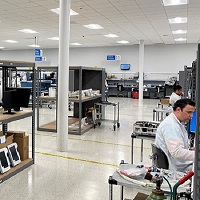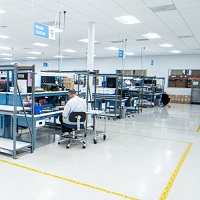How to Budget for a Field Corrective Action (FCA) for Medical Devices
October 22, 2024
When a medical device recall becomes necessary, Original Equipment Manufacturers (OEMs) must act swiftly and efficiently to address the issue. This often requires executing a Field Corrective Action (FCA), which can be complex and costly. OEMs must have a clear budgeting strategy and a trusted partner to manage the financial impact. Here’s how to approach FCA budgeting effectively.
1. Understand the Scope of the FCA
The first step in budgeting for an FCA is to define its scope:
Number of Affected Devices: Quantify the number of devices that require repair or replacement. A recall affecting thousands of devices will require a significantly higher budget than one affecting a small batch.
Geographical Spread: Consider the locations of the affected devices. Field service teams may need to travel to multiple regions, and shipping logistics will vary depending on how the devices are dispersed.
Severity of the Issue: The nature of the defect (e.g., rework/remediation/vs. complete replacement) will also influence the cost. Quest International
completed an FCA for a neonatal infusion pump recall involving 12,000 devices at 180 different locations. Each aspect of the project from logistics to technician deployment, contributed to the overall budget.
2. Allocate Resources for Field Service and Logistics
Executing an FCA requires skilled personnel and robust logistics:
Field Service Costs: If you do not have an in-house field service team, you’ll need to budget for a service partner, like Quest International to perform on-site repairs, recalibration, or device replacements. Field service expenses typically include labor rates for engineers, travel, and accommodation.
Logistics and Shipping: Logistics costs can add up, whether transporting devices to a repair depot or shipping parts to field engineers. Consider the packaging, insurance, and shipping speed needed to meet FDA or internal deadlines.
Quest offers fractional field service and white-glove logistics that can be scaled according to the project's needs, saving partners money and keeping operations efficient.
3. Factor in Quality Assurance and Compliance
Medical device FCAs are subject to strict regulatory requirements. You’ll need to budget for:
Documentation and Reporting:The FDA requires detailed reporting of FCA progress and completion. You may need a project management team to oversee this and quality assurance personnel to ensure compliance with regulatory and ISO standards (such as ISO 13485:2016 for medical devices).
Post-FCA Monitoring: Ongoing monitoring after implementing the corrective action can also be costly. This includes maintaining communication with healthcare providers and end-users to ensure that all devices have been corrected and no new issues arise.
Quest’s quality assurance and compliance teams are guided by Quest’s four ISO registrations: ISO 9001:2015, ISO 13485:2016, ISO 14001:2015, and ISO 27001:2022 and ANSI ESD S20.20-2021 for ESD protection. Our strict adherence to these regulations means that projects are completed with exacting rigor every time.
4. Estimate Direct Costs
Several direct costs are associated with executing an FCA. These may include:
Field Service & Engineering Labor:The costs of dispatching engineers or technicians to repair or replace devices at customer sites. For example, if the action involves replacing faulty components in a specific number of devices, each service visit must be accounted for.
Logistics & Shipping: Transporting parts and devices can be expensive, particularly if devices are distributed globally. OEMs must budget for forward (sending replacement parts) and reverse logistics (returning faulty devices).
Replacement Parts: Manufacturing or acquiring replacement parts is often a significant expense, especially if large quantities are involved. OEMs should consider the cost of both the parts and any additional quality testing. Additionally, many FCA’s require tracking of part serial numbers or batch numbers to provide traceability for parts involved in the FCA and return of defective parts for possible analysis.
Repair & Rework: If the FCA requires on-site repairs, there will be costs for tools, equipment, and potentially setting up temporary repair facilities.
5. Anticipate Indirect Costs
In addition to the direct costs of repair, recalibration, or replacement, there are often indirect costs to consider:
Downtime: During an FCA, healthcare facilities may be unable to use the affected devices. Include the potential loss of revenue or increased warranty claims in your budget.
Customer Support: Enhanced customer service efforts may be necessary to address concerns or questions from healthcare providers and patients affected by the recall.
Quest augments its FCA offerings with Customer Care solutions that can be deployed by our partners. These solutions include providing customer service on behalf of the partner, where our experts serve as extensions of the partner’s brand.
6. Partnering with an Experienced Service Provider
An experienced third-party partner like Quest International can streamline the FCA process, reducing costs through economies of scale and expertise. Quest offers a complete range of FCA services, including:
By leveraging a partner like Quest, OEMs can focus on their core operations while ensuring that the FCA is executed efficiently, potentially reducing overall costs and timeline. With comprehensive services—including field service, logistics, and regulatory compliance support—Quest ensures that the corrective action is handled efficiently and within budget. With us, you can scale resources as needed to avoid unnecessary expenses.
Conclusion
Budgeting for an FCA requires careful planning and an understanding of all the components involved. By defining the scope, allocating resources for field service and logistics, considering regulatory costs, and accounting for indirect expenses, OEMs can create a realistic budget that minimizes the financial impact of a recall.
Partnering with a service provider like Quest International can streamline this process and help ensure that the FCA is both cost-effective and compliant with FDA regulations.
Contact us today for more information on how Quest International can assist with your FCA needs.
MAR-194 REV 1.0













